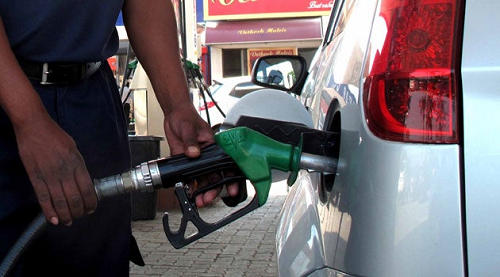The implementation of the revised Energy Sector Levy (Amendment) Act, 2025 (Act 1141) in Ghana marks a pivotal moment in the nation’s energy sector. This legislation, which came into effect on July 16, 2025, introduces significant adjustments to the fuel pricing structure, aiming to address critical funding gaps and foster long-term stability within the energy sector. The decision to proceed with the levy follows a period of careful deliberation and consultations between key government agencies, including the Ministries of Finance and Energy, who assessed global oil market trends and the potential impact on Ghanaian consumers. The government emphasizes that the timing of the implementation aligns with broader fiscal consolidation efforts, supporting Ghana’s economic recovery and enabling investments in crucial energy infrastructure.
The core of Act 1141 lies in the revision of the Energy Sector Shortfall and Debt Repayment Levy (ESSDRL) rates on various petroleum products. This levy serves as a mechanism to accumulate revenue specifically designated for settling legacy debts within the energy sector and financing strategic energy projects nationwide. The increased rates are projected to generate a substantial boost in government revenue, addressing the historical financial burdens and providing a much-needed injection of funds for crucial infrastructure development. While acknowledging the potential short-term impact on fuel prices, authorities maintain that these measures are essential to ensuring the long-term viability and efficiency of Ghana’s energy supply chain.
The revised ESSDRL rates under Act 1141 reflect a significant increase in levies on key fuel types. Petrol (Motor spirit, super, PMI) experiences a more than doubling of the levy, rising from GHS 0.95 per litre to GHS 1.95 per litre. Diesel (Gas oil, AGO) follows a similar trajectory, increasing from GHS 0.93 per litre to GHS 1.93 per litre. Marine Gas Oil sees a substantial increase, with the levy on the locally produced version jumping from GHS 0.03 per litre to GHS 0.23 per litre, while the levy on the foreign version also rises to GHS 1.93 per litre, matching that of diesel. Heavy fuel oil (Residual Fuel Oil, RFO) remains unaffected by the changes, maintaining its previous levy rate. These adjustments reflect the government’s commitment to securing adequate resources for the energy sector while acknowledging the potential implications for consumers.
The rationale behind Act 1141 rests on the pressing need to address accumulated debts within the energy sector and secure funding for critical infrastructure projects. These debts have long hampered the sector’s efficiency and hindered its ability to meet the growing energy demands of the nation. By implementing higher levies, the government aims to generate the necessary revenue to clear these outstanding debts and create a more financially sound foundation for the energy sector. This, in turn, is expected to unlock greater investment in the sector, leading to improved infrastructure and a more reliable energy supply for businesses and consumers alike.
Alongside addressing the debt burden, the increased revenue generated by Act 1141 will be channeled towards strategic energy projects that are crucial for Ghana’s development. These projects encompass a range of initiatives aimed at expanding energy access, improving energy efficiency, and diversifying the energy mix. Investing in these projects will not only enhance the overall performance of the energy sector but also contribute to broader economic growth and development by providing a more reliable and sustainable energy supply to power various industries and sectors across the country.
The implementation of Act 1141 represents a significant step towards strengthening Ghana’s energy sector. While the increased levies may impose a short-term burden on consumers, they are designed to pave the way for long-term stability, improved infrastructure, and enhanced energy security. By addressing the sector’s financial challenges and investing in strategic projects, the government aims to create a more resilient and sustainable energy system that can support Ghana’s ongoing economic development and provide reliable energy access for all its citizens. The effectiveness of these measures will be closely monitored and evaluated to ensure their alignment with the intended objectives and minimize any adverse impact on consumers.














